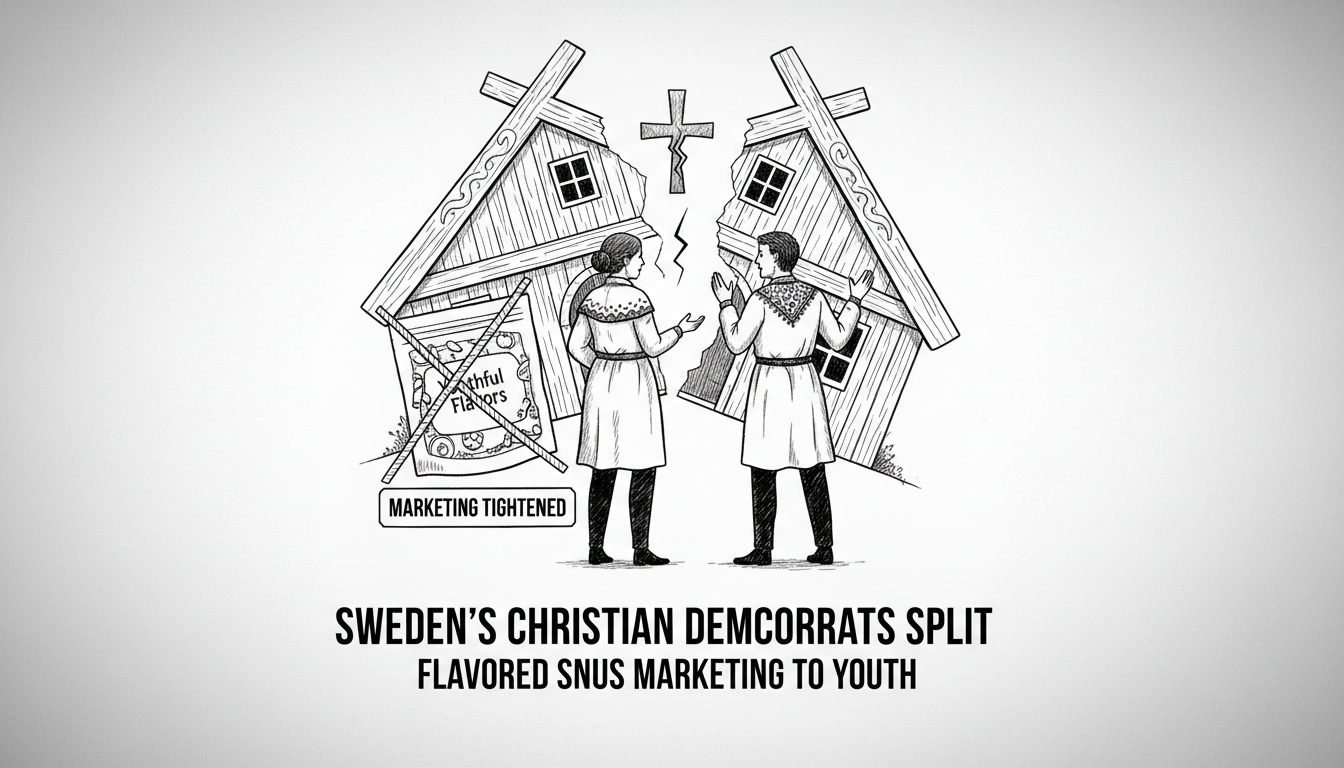Sweden's Christian Democrats face internal division over candy-flavored nicotine products. The party leadership attempted to ban child-friendly snus flavors and packaging during their national conference. Health Minister Elisabet Lann led the charge against what she called cynical bait for young users.
The most popular white snus varieties now feature flavors like watermelon-mint, hot dragonfruit, and jalapeño-lime. These products sound more like candy selections than nicotine products. Party officials argued they deliberately target young consumers with colorful packaging and sweet flavors.
Health Minister Lann stated these products represent a calculated attempt to attract new, young users. She noted the dramatic increase in nicotine use among Swedish youth. Current data shows 16 percent of ninth graders now use snus, compared to just 5 percent seven years ago. Nearly one in three high school sophomores uses nicotine products. Vaping rates continue climbing too, with similar sweet flavor profiles.
Lann argued for clear boundaries during the debate. When manufacturers create products that look like candy, smell like candy, taste like candy, and sell in candy stores, we need to take action, she told delegates before the vote.
The proposal sparked intense internal debate. The party's youth wing, KDU, opposed the ban from the beginning. Vice Chairman Max Pelin questioned whether the party should dictate which flavors adults can choose. He argued politics should not interfere with personal consumption choices.
Pelin also cited research showing mixed evidence about flavor bans actually reducing usage. He warned about political consequences, noting Sweden has one million snus users. Should we approach them with this during an election campaign? That seems poorly considered, he said.
The debate revealed deeper philosophical divides within the party. Pelin emphasized conservative values should strengthen parental responsibility rather than having politics take over. He questioned how authorities would determine what constitutes a child flavor versus an adult flavor.
Local politician Evelina Solem raised practical concerns during Sunday's debate. Is it coffee, is it champagne, is it punsch? Who gets to decide what counts as an adult flavor? she asked.
Patrick Sackner Christensen, the motion's author, defended the proposal. The Danish former elite swimmer compared nicotine regulation to sports training. Start with children, set clear boundaries, and take responsibility, he argued. He described stores where candy and nicotine products sit side by side, with bright colors and sweet flavors triggering impulses in children who should not be the target market.
Christensen pointed to Denmark and other European countries as examples where clear regulations produce results. He dismissed youth wing concerns about paternalism, suggesting their position reflected personal habits rather than policy principles.
After unusually contentious voting procedures, the conference ultimately rejected the flavor and packaging ban. Delegates settled on a compromise position focusing on tightening marketing restrictions targeting young people. The outcome leaves Sweden's flavored nicotine market unchanged for now but exposes significant fault lines within the center-right party.
This internal conflict reflects broader European debates about nicotine regulation. Sweden maintains unique tobacco traditions with snus legal while other EU nations ban it. The country faces balancing public health concerns against personal freedom and established cultural practices. The Christian Democrats' struggle mirrors larger questions about how democracies regulate potentially harmful products that enjoy widespread public use.

